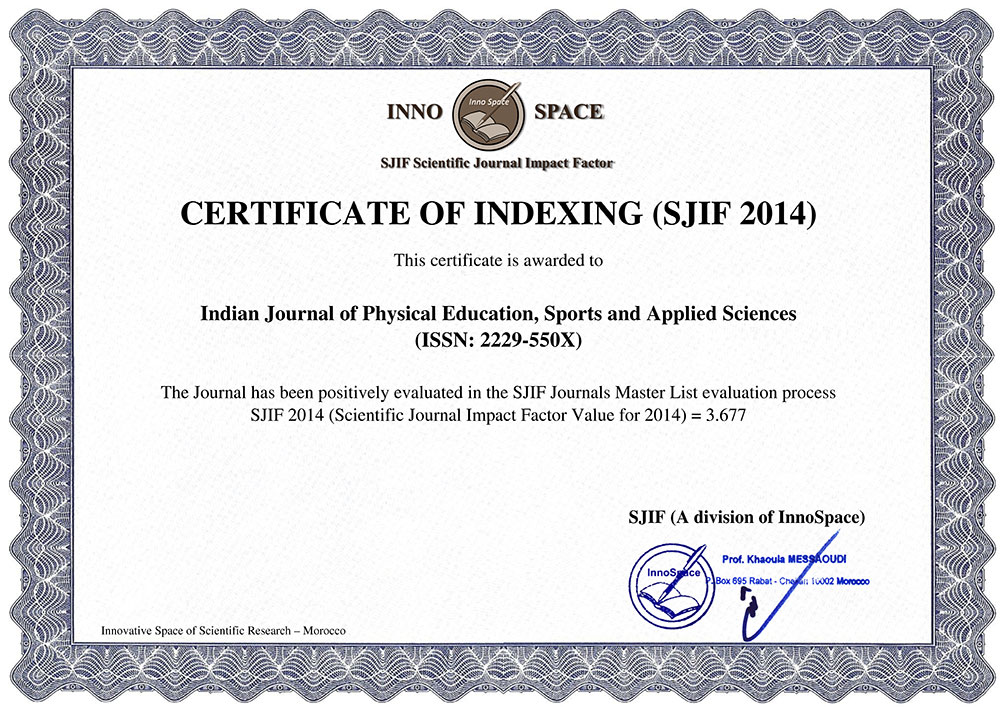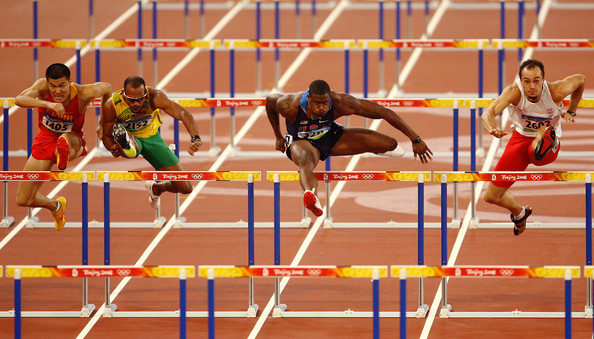INFLUENCE OF HIGH ALTITUDE TRAINING ON PHYSIOLOGICAL VARIABLES AMONG COLLEGE LONG DISTANCE RUNNER
2019, July, July, Volume 9-Number 3 September 21, 2019| Author name : | Javead Ahmed Itoo and Dr. C.Vairavasundaram | ||||
|---|---|---|---|---|---|
| Page no : | 56-61 | Volume : | 9 | Issue : | 3 |
doi no.: 05-2016-44975451,DOI Link :: http://doi-ds.org/doilink/09.2019-58958734/
Javead Ahmed Itoo 1 and Dr. C. Vairavasundaram 2
Affiliations
1 Ph.D. Research Scholar Alagappa University College of Physical Education, Karaikudi, Tamilnadu, India
2 Assistant Professor,, Alagappa University College of Physical Education, Karaikudi, Tamilnadu, India
ABSTRACT
The purpose of the study was to find out the influence of high altitude training on physiological variables among college long distance runners. To achieve the purpose of the study thirty long distance runners from affiliated colleges of Kashmir University, Srinagar were selected at random and their age ranged from 18 to 25 years. The subjects were divided into two equal groups of fifteen each. Group I acted as Experimental Group High altitude training and Group II acted as Control Group. The requirement of the experiment procedure testing as well as exercise schedule was explained to the subjects so as to get full co-operation of the effort required on their part and prior to the administration of the study. The study was formulated as a post test only random group design. The duration of experimental period was 8 weeks. After the experimental treatment, all the subjects were tested on physiological variables namely vo2 max and resting heart rate. This final test scores formed as post test scores of the subjects. The post test scores were subjected to statistical analysis using analysis of co-variance. In all case 0.05 level of confidence was fixed to test hypotheses. The High Altitude training, both in natural/terrestrial and artificial conditions, has been established as an effective means to improve on vo2 max and resting heart rate among long distance runners after undergoing high altitude training for a period of 8 weeks.
Keywords: High altitude training, physiological variables, Long distance runners.
DOWNLOAD FULL TEXT: 
BIBLIOGRAPHY
Bailey, D. M. & Davies, B. (1997). Physiological implications of altitude training for endurance performance at sea level: a review. British journal of sports medicine, 31(3), 183-190.
Chapman, R. F. (2013). The individual response to training and competition at altitude. British Journal Of Sports Medicine, 1-6.
Cao, Y., Ichikawa, Y., Sasaki, Y., Ogawa, T., Hiroyama, T., Enomoto, Y., … & Nishiyasu, T. (2019). Expiratory flow limitation under moderate hypobaric hypoxia does not influence ventilatory responses during incremental running in endurance runners. Physiological reports, 7(3), e13996.
Epthorp, J. A. (2014). ALTITUDE TRAINING AND ITS EFFECTS ON PERFORMANCE – SYSTEMATIC REVIEW. Journal Of Australian Strength & Conditioning, 22(1), 78-88.
Garvican-Lewis, L. A., Clark, S. A., Polglaze, T., McFadden, G., & Gore, C. J. (2013). Ten days of simulated live high:train low altitude training increases Hbmass in elite water polo players. British Journal Of Sports Medicine, 1-4
Lucia, A., Esteve-Lanao, J., Oliván, J., Gomez-Gallego, F., San Juan, A. F., Santiago, C., … & Foster, C. (2006). Physiological characteristics of the best Eritrean runners— exceptional running economy. Applied physiology, nutrition, and metabolism, 31(5), 530-540.
Levine, B. D., & Stray-Gundersen, J. (1997). “Living high-training low”: effect of moderate-altitude acclimatization with low-altitude training on performance. Journal of applied physiology, 83(1), 102-112.
McLean, B. D., Buttifant, D., Gore, C. J., White, K., Liess, C., & Kemp, J. (2013). Physiological and Performance Responses to a Preseason Altitude-Training Camp in Elite Team-Sport Athletes. International Journal Of Sports Physiology & Performance, 8(4), 391-399.
Vandermark, L. W., Lorenzo, S., & Chapman, R. F. (2018). Altitude. In Sport and Physical Activity in the Heat (pp. 125-144). Springer, Cham.







